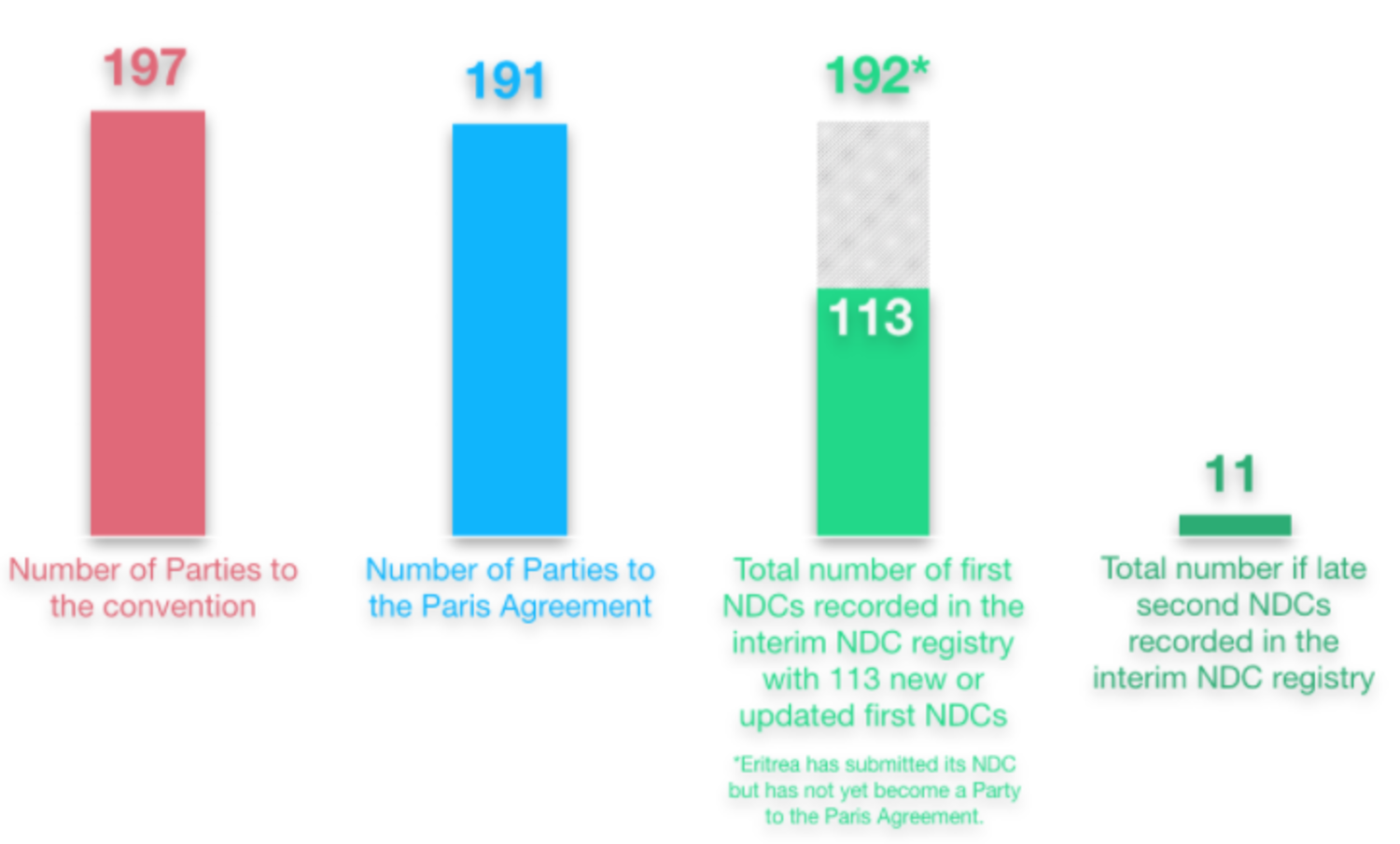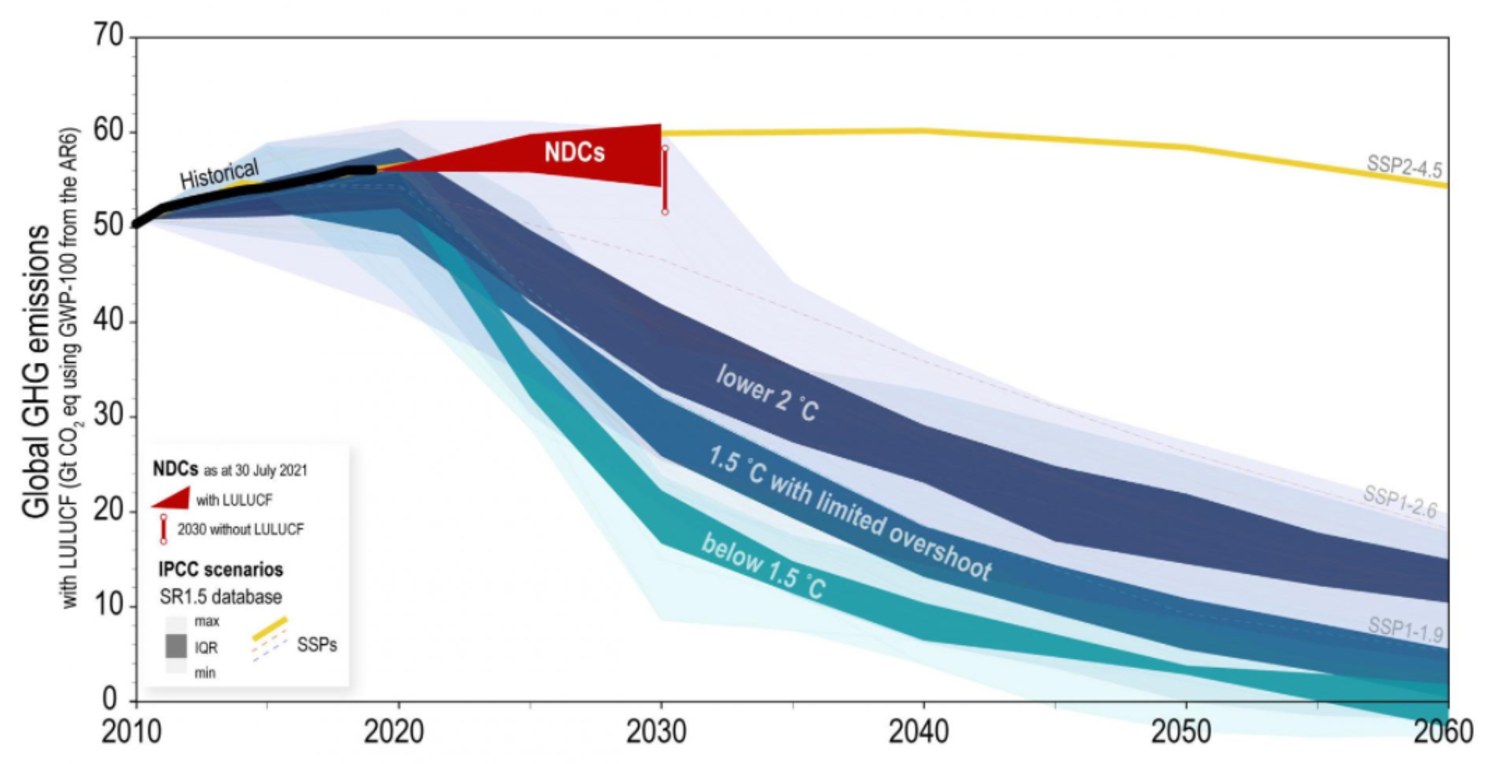COP26: Making Progress in Commitments and Actions



“The COP26 summit will attempt to obtain more commitments from all countries to the reduction of emissions and the taking of specific measures. We believe that all countries should take part in this initiative to make it a shared effort and to make progress in decarbonisation”.
Glasgow summit to review progress made in last two years.
The next United Nations Conference of the Parties on Climate Change (COP26) is to be hosted by the United Kingdom in partnership with Italy and is to take place from 31 October to 12 November 2021 in Glasgow. The summit will be the culmination of tireless efforts made by the UK in 2020 and 2021 that will continue until it hands over the presidency at the end of 2022. The conference will review initiatives taken by countries that signed the Paris Agreement (COP21, 12 December 2015), which came into effect on 4 November 2016. A review of progress made is as follows:

Disparate commitments remain far from meeting targets.
All countries adhering to the agreement are to submit their updated emission targets, known as nationally determined contributions or NDCs, in order to evaluate progress and accelerate efforts as needed. Of the 191 signatories of the Paris Agreement, only 113 (59% of total) have recently updated/revised their commitments to the reduction of greenhouse gasses. These “more diligent” countries account for 49% of worldwide emissions and foresee a 12% reduction by 2030 vs. 2010. Each climate plan reflects its country’s ambition insofar as emission reduction, considering domestic circumstances and capacities, and is indicative of its approach to matters such as equality, sustainable development and eradication of poverty. COP26 will attempt to encourage the involvement of all countries, especially those that have not submitted their targets.

The latest Panel on Climate Change (IPCC)shown that we remain far from meeting the target.
The UN has expressed concern that the whole of projected emissions of the signatory countries may result in an increase of nearly 16% by 2030 vs. 2010. The target of achieving a 25% reduction by 2030 to limit global warming to 2.0 degrees Celsius remains in place, although the latest conclusions of the Intergovernmental Panel on Climate Change (IPCC) reflect concern that the increase may result in 2.7 degrees Celsius of warming by the end of the century. Another goal of the COP26 summit is implementation by the private sector of a system in which emission measurement and reporting are compulsory. If multinational enterprises focus on their emissions throughout their chains of value, chiefly in emerging economies, they will have reason to undertake investment and help reduce emissions in those countries. It could be a highly effective form of action.
The goal of decarbonisation of the economy is highly ambitious.
In order to meet targeted emission reduction for 2030 and to make the countries carbon neutral by 2050, different targets will have to be consolidated, including the following:
All of these targets imply significant cost in the short term, although the future benefits may be much greater. This is the reason for the countries’ different positions, depending on their levels of development and the competitiveness of their economies. The COP26 summit will call for the taking of specific initiatives, such as a moratorium on the use of vehicles with internal-combustion engines from 2030 onward in the EU and the UK. Such initiatives provide industries with specific measures to be taken in order to bring about the required changes.
Significant mobilisation of economic resources.
From a financial perspective, developed countries have committed to providing developing countries with at least USD100bn per year in financing for 2020. The funding is to come from diverse sources, it is chiefly aimed at emerging economies and, in particular, developing countries, and it is to be used in areas such as reforestation, nature-based solutions and the development of sources of renewable energy and other low-carbon sources. Resources will be needed to strengthen the climate-related efforts of emerging economies, and the purpose of the summit is to ensure fulfilment of the commitment assumed over 10 years ago.
Encouraging involvement of private sector.
Glasgow Financial Alliance for Net Zero (GFANZ) is backed by over 160 signatories that manage over USD70tn, and its purpose is to channel investment in the transition toward zero-emission economies. These pension funds, insurers and sovereign investment funds are working on substantial methodologies to align their portfolios with the targeting of zero net emissions by 2050. The challenge that financial institutions are facing is the mobilisation of sufficient private and public funding.
Progress made in commitment to decarbonisation.
The COP26 summit will propose the passing of all legislation for the implementation of the Paris Agreement and will promote specific measures for the meeting of targets. In our opinion, some facts may be observed clearly: there is a growing commitment to decarbonisation, it will be costly and much is at stake. As we pointed out in July (HIGH-SPEED RENEWABLE ENERGY (WITHOUT CRASHING)), this transition and the development of renewable energies must preserve competitiveness and observe demanding criteria in order to make quick progress in the right direction. Replacement of fossil fuels so quickly is a very difficult challenge that affects all of humankind.
Diese Veröffentlichung wurde von Mirabaud erstellt. Sie ist nicht zur Verteilung, Verbreitung, Veröffentlichung oder Nutzung in einer Gerichtsbarkeit bestimmt, in der eine solche Verteilung, Verbreitung, Veröffentlichung oder Nutzung untersagt wäre. Sie ist nicht für Personen oder Unternehmen bestimmt, an die die Übersendung dieser Veröffentlichung rechtswidrig wäre.
Mehr lesen
Weiter zu
